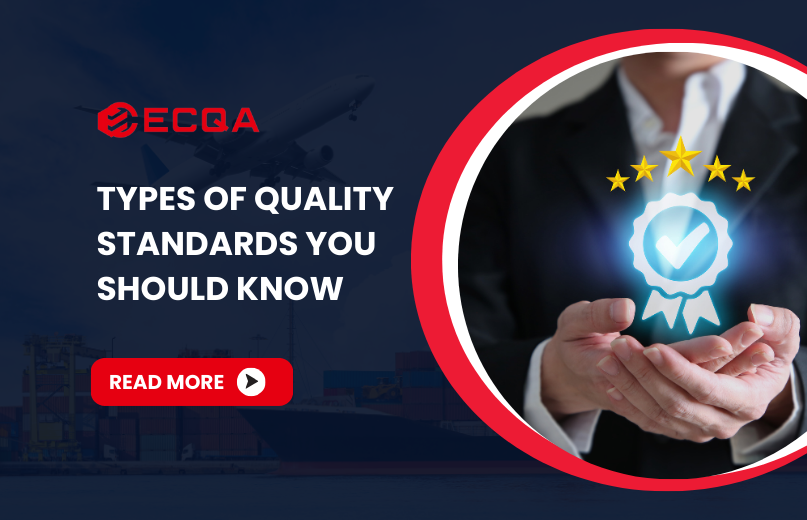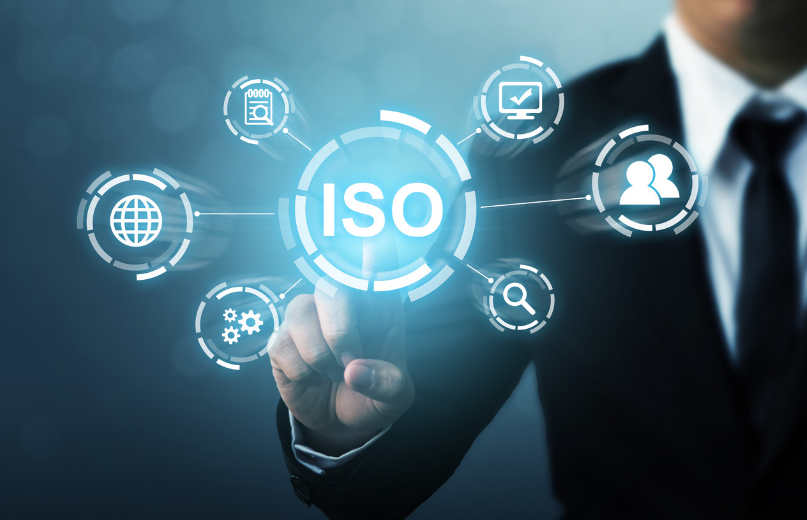
Types of Quality Standards You Should Know
Quality standards are documented agreements that define the requirements, specifications, guidelines, or characteristics that products, services, processes, or systems must meet to ensure they are fit for their intended purpose.

They help businesses maintain consistency, reliability, and safety, and are often established by recognized organizations such as:
- ISO (International Organization for Standardization)
- IEC (International Electrotechnical Commission)
- ASTM International
- National standards bodies (e.g., ANSI in the U.S., BSI in the U.K.)
These standards:
- Promote consistency and repeatability
- Ensure compliance with regulations
- Enhance customer satisfaction
- Improve operational efficiency
- Facilitate international trade
1. ISO Quality Standards (International Organization for Standardization)
No list of quality standards would be complete without ISO. It’s the gold standard—literally.
ISO 9001 – Quality Management Systems
Arguably the most recognized standard globally, ISO 9001 lays out the criteria for a quality management system (QMS). It’s built around seven principles:
- Customer focus
- Leadership
- Engagement of people
- Process approach
- Improvement
- Evidence-based decision making
- Relationship management
Adopting ISO 9001 demonstrates a commitment to consistency, customer satisfaction, and continuous improvement. It applies to all organizations, regardless of size or industry.
ISO 14001 – Environmental Management
While not strictly a product quality standard, ISO 14001 ensures environmental impacts are managed responsibly. Quality today includes sustainability. Consumers care about carbon footprints, and regulators are cracking down.
Integrating ISO 14001 with ISO 9001 creates a powerful synergy—quality with conscience.
ISO 45001 – Occupational Health and Safety
A quality operation protects its people. ISO 45001 helps organizations provide safe and healthy workplaces, reduce injuries, and comply with safety regulations. It’s crucial in manufacturing, construction, and logistics.
ISO/IEC 17025 – Testing and Calibration Laboratories
If your business involves testing, inspection, or calibration, ISO/IEC 17025 is essential. It ensures that labs produce technically valid results, a must-have for legal, clinical, and scientific credibility.
2. Industry-Specific Quality Standards
Some industries demand more than generic guidelines. Specialized fields require their own quality frameworks, tailored to unique risks and expectations.
IATF 16949 – Automotive Industry
Developed by the International Automotive Task Force, IATF 16949 integrates ISO 9001 with automotive-specific requirements. It’s mandatory for suppliers to major automakers.
Focus areas include:
- Product traceability
- Defect prevention
- Supplier development
- Embedded risk management
Find out how the EV battery testing standard is integrated into the automotive industry.
GMP – Good Manufacturing Practices (Pharma & Food)
In sectors that touch human health, quality is about life and death. GMP standards are enforced by governments and required for pharmaceuticals, food, beverages, cosmetics, and medical devices.
Key principles:
- Hygiene and sanitation
- Record-keeping
- Validation and verification
- Personnel training
FSSC 22000 – Food Safety System Certification
When ISO 22000 (food safety) meets sector-specific technical standards, you get FSSC 22000. It’s globally recognized and often required by multinational food brands.
It covers:
- Hazard analysis and critical control points (HACCP)
- Prerequisite programs (PRPs)
- Supply chain controls
HACCP – Hazard Analysis & Critical Control Points
Before FSSC came along, HACCP was the original food safety framework. It’s still critical—especially in smaller operations. It identifies, evaluates, and controls food safety hazards before they become problems.
3. National and Regional Quality Standards
While global frameworks like ISO dominate, many countries enforce their own quality standards for specific products and sectors.
ANSI (American National Standards Institute)
ANSI doesn’t develop standards directly—it coordinates them in the U.S. It approves everything from electrical specs to safety practices. Many ANSI-endorsed standards become law in regulated sectors.
BSI (British Standards Institution)
Founded in 1901, BSI developed the world’s first QMS standard. It’s still a leader in the UK and often works in tandem with ISO. BSI Kitemark is a powerful symbol of trusted quality.
DIN (German Institute for Standardization)
Germany takes precision seriously. DIN standards are renowned for engineering and manufacturing rigor. In many industries—especially machinery and automotive—DIN is synonymous with dependability.
CCC (China Compulsory Certification)
Any product imported into or sold in China may need CCC certification, proving it meets safety and quality requirements. If you’re manufacturing abroad but selling in China, this is your gatekeeper.
4. Sustainability & Ethical Quality Standards
Modern consumers want more than just function—they want integrity. That’s where sustainability and social responsibility standards step in.
SA8000 – Social Accountability
Developed by Social Accountability International, SA8000 focuses on labor rights, fair wages, workplace safety, and human dignity. It’s particularly valued by global buyers looking to avoid exploitation in their supply chains.
ISO 26000 – Social Responsibility Guidance
Though not certifiable, ISO 26000 helps organizations integrate ethical behavior into business operations. It’s a framework for aligning actions with global expectations around human rights, community involvement, and sustainability.
Fair Trade & Organic Certifications
In food, textiles, and agriculture, labels like Fair Trade, Rainforest Alliance, and USDA Organic have become powerful quality signals. They represent rigorous audits of environmental and social impact—consumers trust them.
5. Quality Standards in Services
Quality isn’t just a manufacturing concern. In today’s service-driven economy, expectations around delivery, transparency, and customer care are just as high.
ISO 20000 – IT Service Management
This standard helps IT service providers ensure that services meet business needs and SLAs (Service Level Agreements). It aligns with ITIL (Information Technology Infrastructure Library) principles and improves incident management, asset tracking, and service delivery.
ISO 10002 – Customer Satisfaction and Complaints Handling
Complaints aren’t failures—they’re opportunities. ISO 10002 guides businesses in resolving complaints efficiently, fairly, and transparently—turning unhappy customers into loyal ones.
Quality standards build trust, ensure compliance, and lay the foundation for sustainable growth. Whether you’re manufacturing products, delivering services, or managing supply chains, aligning with the right standards is essential to staying relevant and resilient.
At ECQA, we specialize in helping businesses like yours navigate the complex landscape of quality systems. With decades of experience and industry-specific expertise, we support organizations across manufacturing, packaging, and service sectors to implement internationally recognized standards with confidence and clarity.
From ISO certifications to industry-specific frameworks, we don’t just guide—you grow with us.
Ready to elevate your quality performance?
Partner with ECQA to implement the right quality standards and set your business apart with consistency, credibility, and excellence at every level.

 Request Free Sample Report
Request Free Sample Report